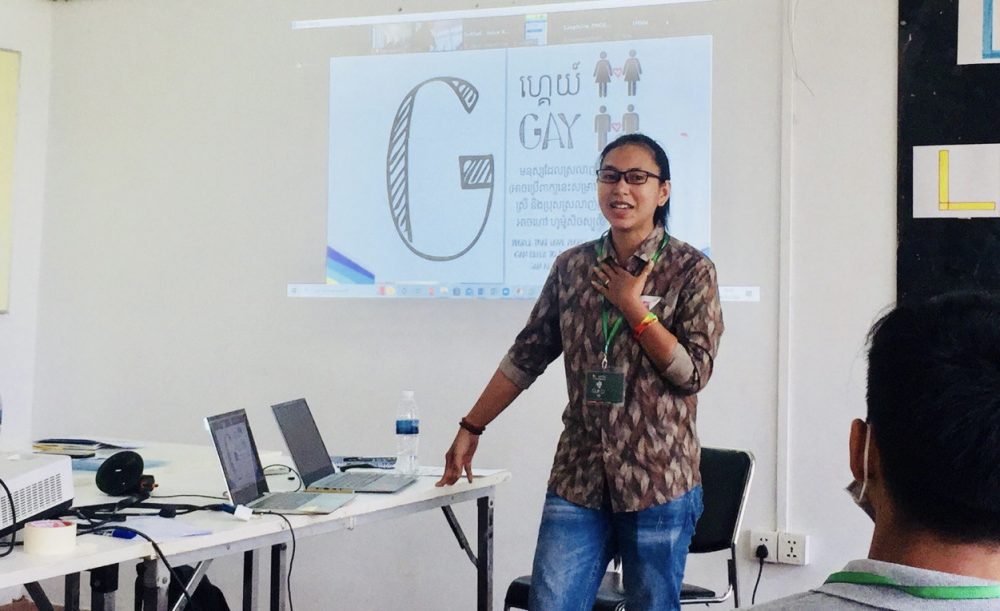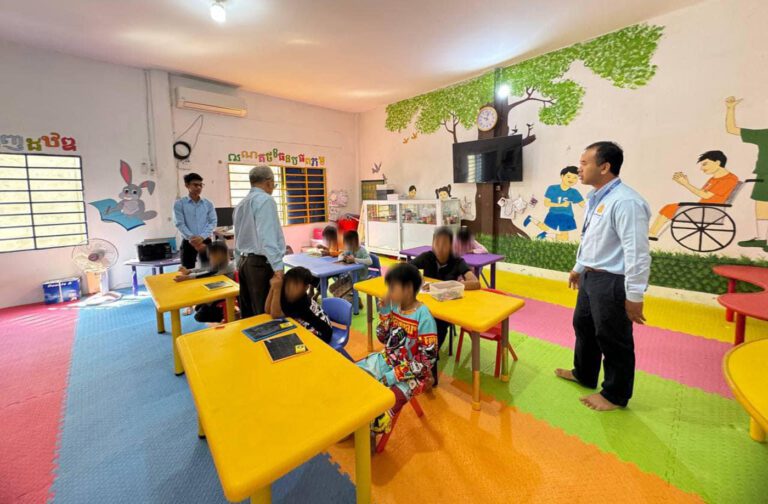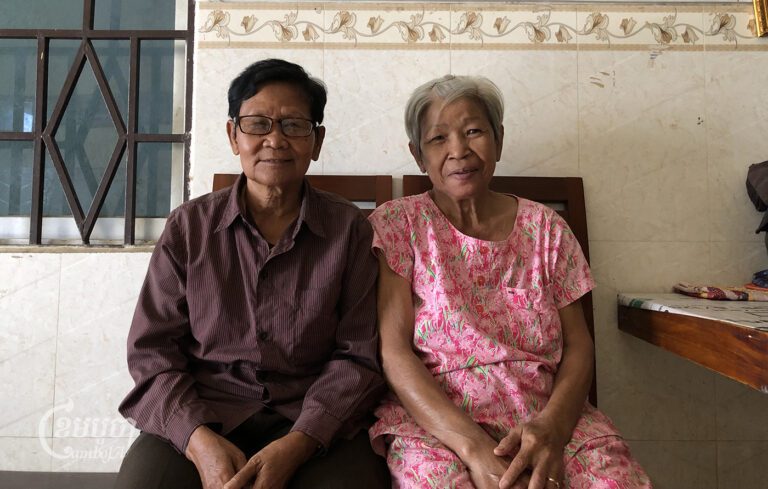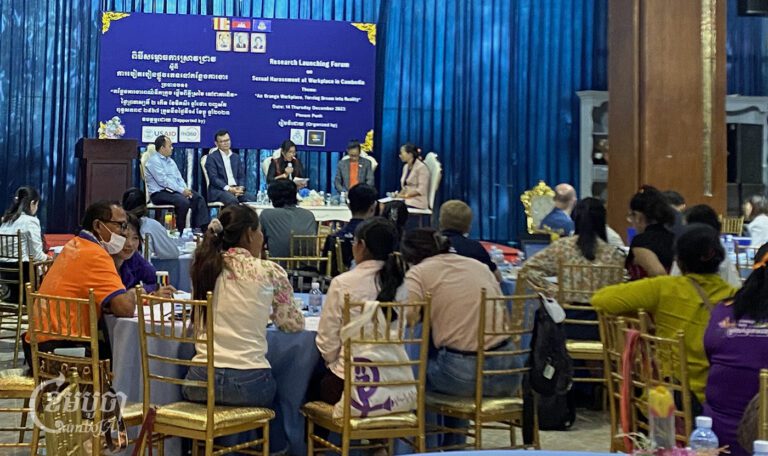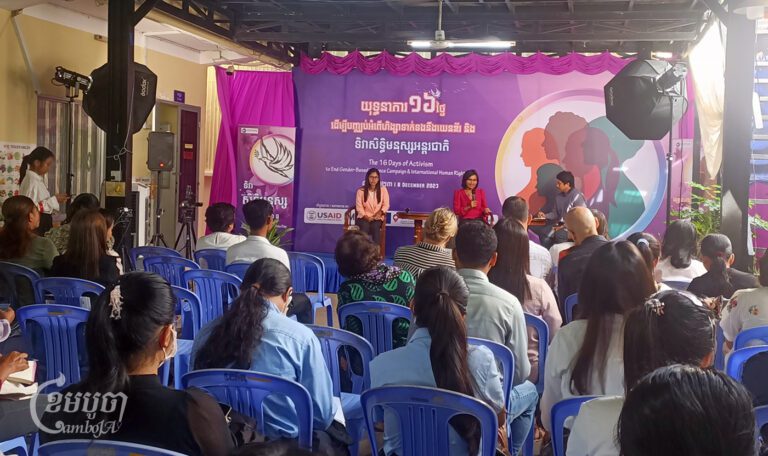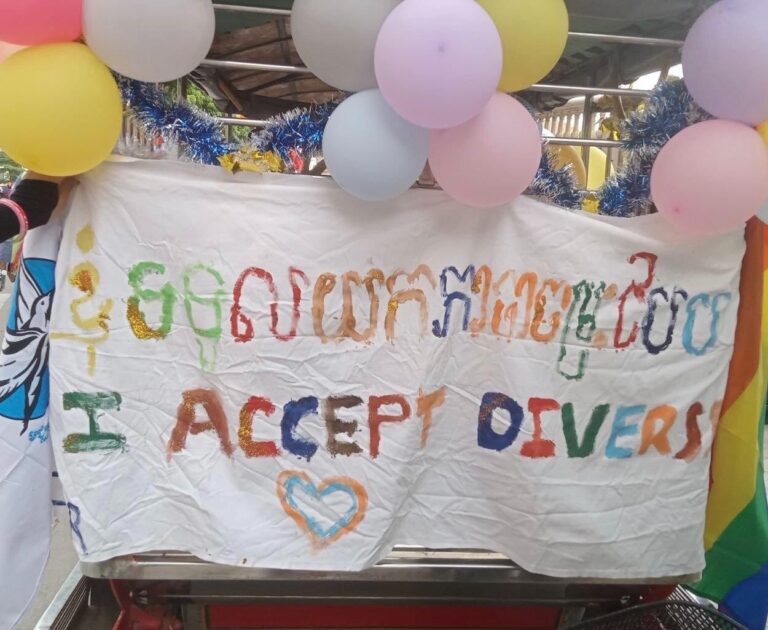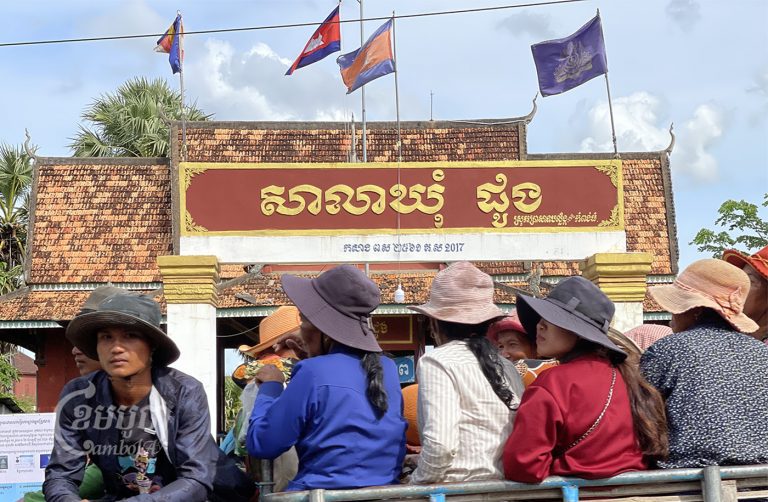Although LGBT persons’ rights are promoted by civil society organizations in Cambodia, they still face discrimination and exclusion from the workforce – especially in the private sector – as they are not protected by law.
Tol Chhourkimheng, a 29-year-old LGBT rights activist, said that LGBT people continue to face challenges related to personal, family, work, and social issues.
She said they remain vulnerable as some families do not accept their children’s gender identity and often commit violence against children, especially in rural areas. They are also subject to ridicule and jeering from those around them.
She described her experience of being discriminated against and ridiculed by work colleagues, which has left her with low self-esteem and depression.
“The staff there is not happy working with me and they start to look down on me. They ask me if I’m going to be married to a woman or a man,” she said. “They say they don’t discriminate, but they make jokes about me at the workplace. I am affected so much, I am depressed for two years.”
The biggest challenge that the LGBT community faces in Cambodia is the lack of legal protection and marriage equality. Without it, they are unable to live in stability, peace, or with the full recognition of society.
“If there is no marriage equality law, it means that we (LGBT) cannot get some benefits at work and in society, because we do not have family book and marriage certificate,” Chhourkimheng said.
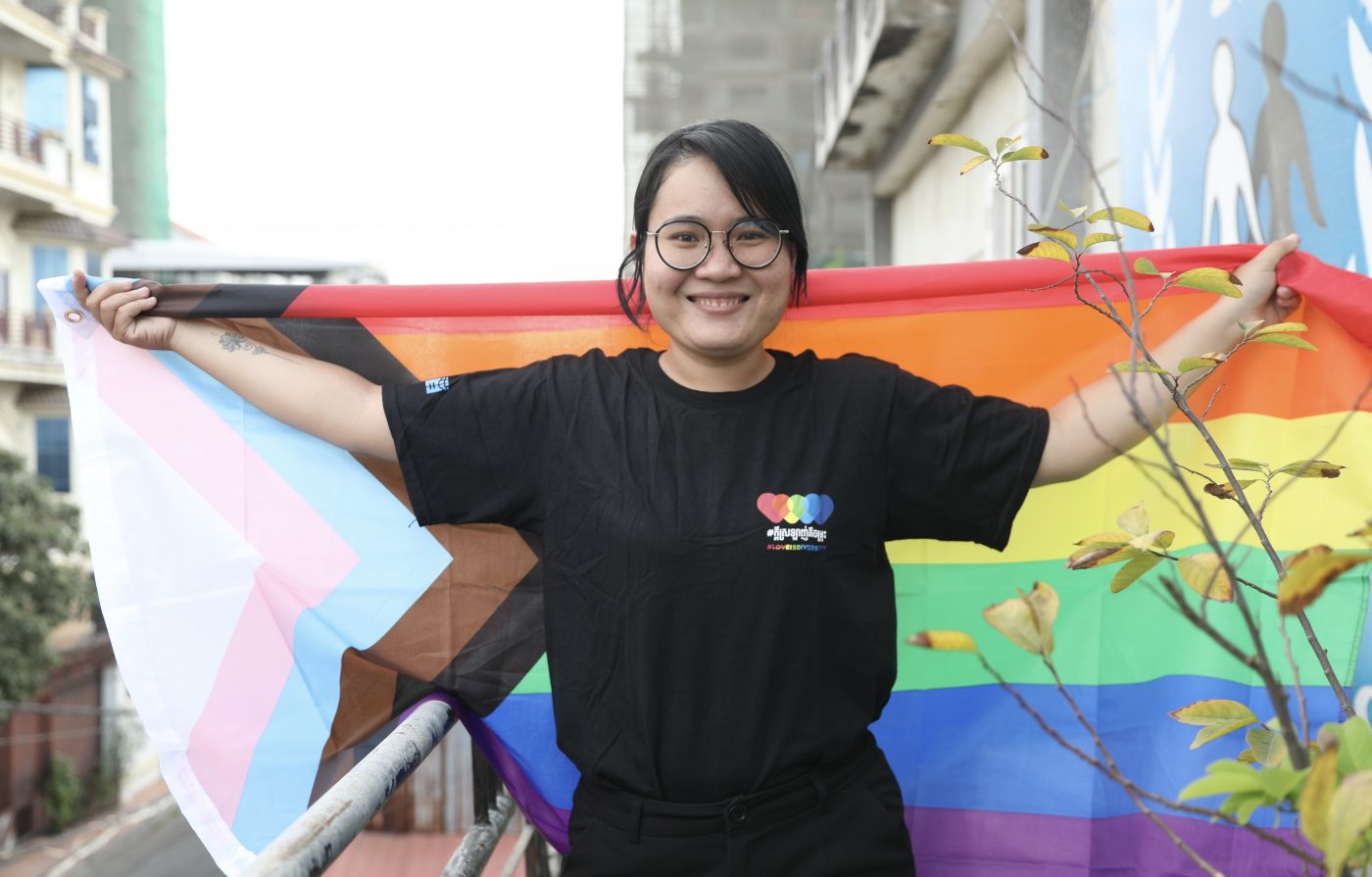
Kuy Thida, the 30-year-old co-founder of the LGBT group Loveisdiversity, said he had also faced pressures from work and family.
“As I began to realize that I am LGBT, I started to worry that my family would not recognize me,” he said. “That feeling is very scary, lonely and difficult.”
He related an experience from when he was working at a private school in 2015. “I wore a uniform according to school requirements. But one day, the management asked me in a meeting (with a lot of people) about my personal story—am I LGBT? I am not happy with that question. It’s like putting pressure on me.”
Like Chhourkimheng, Thida also stressed the need for a law related to marital equality. “When we have a partner but we do not have a marriage certificate together, we are not a legal partner recognized by law in Cambodia and we also lose many other social benefits,” he said.
“It is a civil right that we can choose the people we love,” he added.
Lim Borin, a project coordinator at the Cambodian Center for Human Rights, said that the lack of a marriage certificate has also led to difficulties for the LGBT community in obtaining other legal documents, such as family books and birth certificates of any adopted children.
According to the center’s report on discrimination in the workplace against LGBT people, they often felt that they were passed over for jobs even when they were competent.
Borin said that though civil society groups have been trying to promote LGBT rights and advocate for the government to enact laws on gender and marital equality, there has been no response so far.
When activists raised the issue, the government said that it was not yet the right time and that laws can only follow when public opinion is accepting of LGBT people.
However, he said, “We should not wait until everyone is open to accepting LGBT people and we should make laws to protect and ensure peace.”
He added that discrimination against LGBT people mostly occurs among the elderly and in rural areas.
Chhoeung Rachana, a coordinator at the International Micro Rainbow Foundation in Cambodia, said that the foundation’s research on the economic situation of LGBT people in Cambodia shows that there are many forms of discrimination against LGBT across all stages of work—from recruitment, to interview, to employment.
“Most of the men and women are chosen,” she said. “When an LGBT person sees the recruitment, he or she feels it does not fit with them,” she said. “During the interview, they are asked about their identity. And in some cases, LGBT people hide their identities when entering work,” she said.
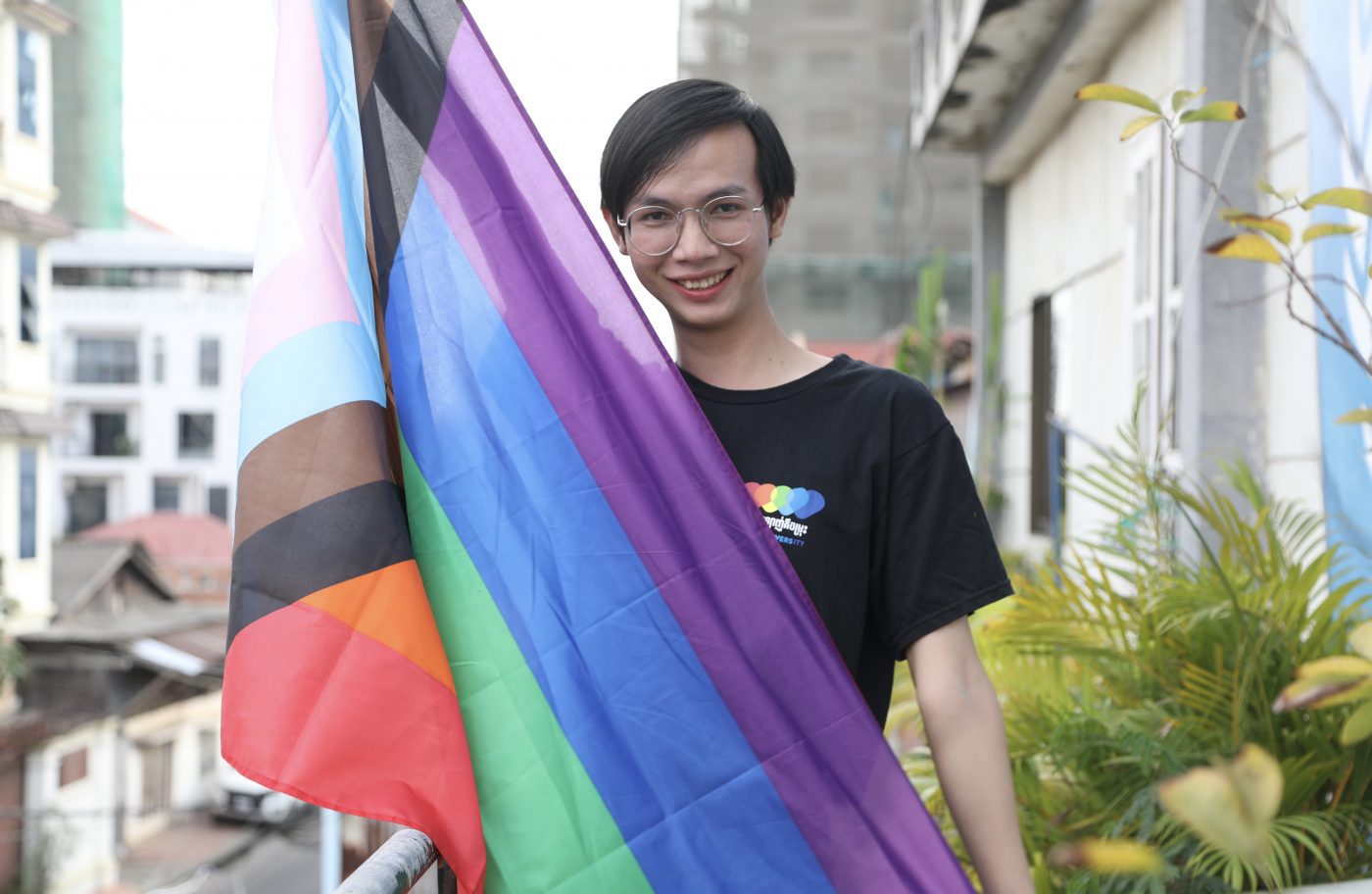
This has made LGBT job seekers feel less comfortable in applying for jobs according to their abilities, making it harder for them to find work. It also makes it difficult for them to stay at a job, resulting in having to change workplaces frequently, which will affect them economically and socially.
Seng Sokcheat, a 30-year-old LGBT graphic designer at a private company, also described how this discrimination has made it difficult for those who identify as LGBT to live in society – forcing them to stop studying or to stop working.
Chin Malin, vice president of the Cambodian Human Rights Committee (CHRC) said that the situation facing LGBT people in Cambodia is better now than before, but that laws to recognize gender and marriage equality have not yet been established.
“We have not yet drafted this law because our society has not yet widely accepted this,” he said. “When society has more acceptance, lawmakers will prepare accordingly.”


